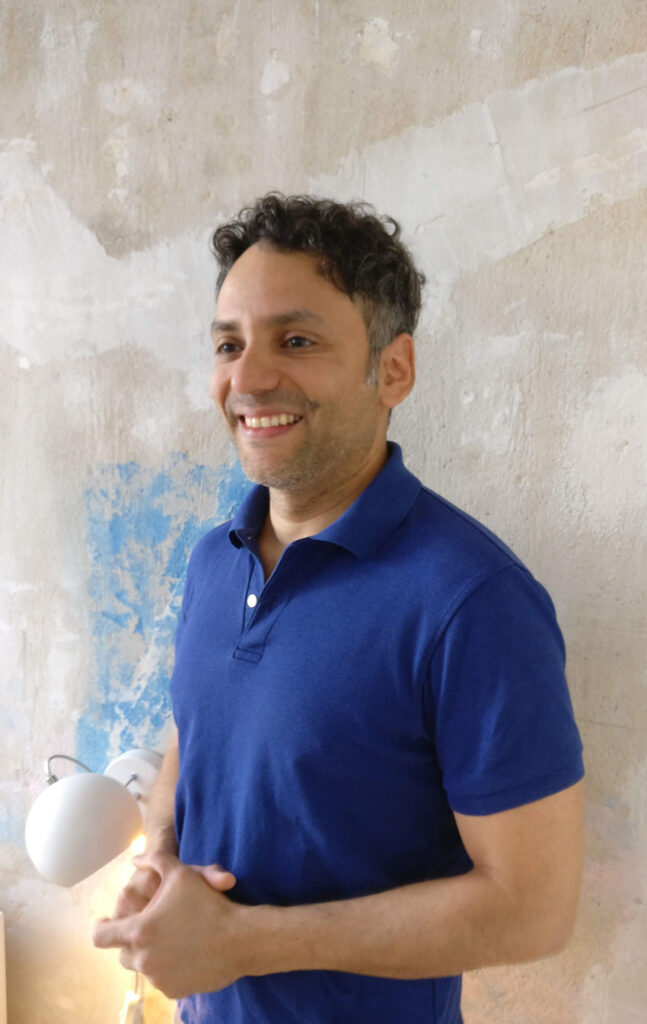
I started doing architecture in 2002 and for health settings since 2007.
My early career task was to work with many hospitals in my home country Venezuela where patient and staff-centered designs are completely absent. Years later, I trained at the Berlin School of Public Health at Charité Medical University to learn scientific methods that could support building design processes targeting better health outcomes. Today I apply this knowledge in urban planning at the neighborhood level to accelerate the achievement of sustainable development goals.
At TU-Berlin, I have the opportunity of contributing to capacity-building in Urban Health at the Urban Management Program and the Department of Design and Building Sciences led by Prof. Jacob van Rijs. My activities also include being an editor to the Cities & Health Journal, which allows the production and dissemination of urban health knowledge.
As an independent researcher, I founded the Building Health Lab in 2018, a Think & do Tank with the mission of applying health strategies to reach sustainable urban developments. The Lab bridges academia with practice using a framework called UrbanCare, a pedestrian health approach with transdisciplinary problem-solving techniques.
Through the UrbanCare project, our team helps other researchers develop case studies across Europe to support urban ecosystem regeneration and human health at the neighborhood level. Globally, we also collaborate with climate and health advocacy groups such as the Global Health Hub.
Born in Venezuela, Alvaro spent most of his childhood in the U.S.A. to later return and achieve an architecture diploma in Caracas. In Spain, he completed construction management and then moved to Berlin, Germany. His vision to combine health and architecture got him accepted to study at the Charité Medical University of Berlin, the first architect to achieve a Public Health master at this institution.
In academia since 2011, Alvaro has been an Evidence-based Design Researcher at the Technische Universität Berlin, where he has conducted numerous pedestrian evaluation projects in various countries. At the TU-Berlin Urban Management Program, he teaches Urban Walkability, and at the Architecture faculty, he conducts research on healthcare delivery environments in collaboration with WHO Téchne.
In practice, Alvaro is the founder and manager of BHL Building Health Lab, a Think & Do Tank that creates health strategies to integrate sustainable development goals in urban planning and architectural design.
At BHL, he conceptualized and developed UrbanCare, a methodology to assist city planners in structuring cases for urban health in different climate zones such as the Oceanic in Gothenburg, Continental in Berlin, Intermediterranean in Florence, and the Mediterranean climate in Nicosia.
Alvaro also acts as commissioning editor for the Cities & Health Journal, collaborates with the German Architects Declare for Climate and Biodiversity, and is a member of the German Alliance for Global Health and the pedestrian advocacy group “Fuß e.V.” in Berlin.
● Pocket Clinics and Hospitals for Indonesia – 12 CP, master students, TU-B 2017
● Raum Pilot a Center for Diabetes – 12 CP, master students, TU-B 2016
● Designing Medical Neighborhoods – 5 CP, master graduate students, POLIMI 2016
● Urban Walkability & Streetscape Design – 5 CP, master graduate students, TU-B 2016
● Urban Walkability – 3CP, master students, Dessau International Architecture (DIA) 2016
● Consecutive Places & Walkability – 15 CP, master students, TU-B 2014-15
● Active Places XL – 15 CP, master students, TU-B 2013
● Building Health – 3 CP, master graduate students, Charité Universitätsmedizin Berlin 2013
● Ask, Find, Think & Decide! Evidence-based design research, 3CP masters, TU-B 2013
Evidence-based design in healthcare settings
Healing architecture concept and evidence based design research
This chapter develops on the premise that Healing Architecture works but cannot explain its curing capacities without support of an Evidence-based Design (E-bD) approach. A field redefined in this essay as the process that ensures architecture develops to enhance human health.
City Development for health
Principles for Assessing population health; Walkability evaluation; Streetscape Design
City Development is a teaching research project that started in the Winter Semester of 2013 with a course titled Building Health.
Understanding Walkability
An urban form and street pattern comparison
This descriptive study provides information indicative of the interaction between physical features of neighbourhood environments with health behaviours such as walking and biking which consequently affect disease rates related to lifestyle.
Urban Medical Neighborhoods
Considerations on building neighborhood health ecosystems
Aiming transformational change in healthcare, this study elaborates on how sustainable health systems be acheived when built on the strongest pillar of any country’s economy: the building sector.
We battle climate change impacts on urban ecosystems and health across different European climate zones.
Co-funded by the European Union.
We support city makers in implementing sustainable development goals with evidence.